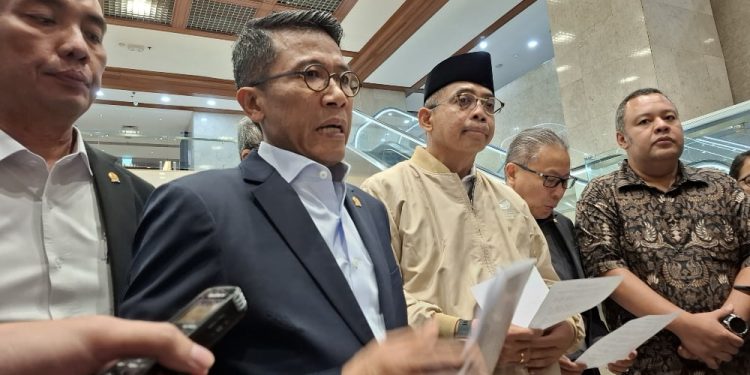Jakarta, Indonesia Sentinel — Indonesia’s Ministry of Finance and the House of Representatives (DPR) have agreed to maintain the old tax administration system alongside the newly implemented Coretax system. The decision comes after multiple technical issues hindered Coretax’s rollout, prompting concerns from businesses and lawmakers.
During a four-hour meeting with Commission XI of the DPR on Monday, February 10, 2025, officials determined that both systems would operate concurrently to ensure smooth tax collection. The decision was announced by Commission XI Chairman Mukhamad Misbakhun, who emphasized the need for a backup system.
“We concluded that the Directorate General of Taxes (DJP) will continue utilizing the old tax system as part of its mitigation strategy while refining Coretax, ensuring that tax revenue collection remains unaffected,” Misbakhun stated during a press conference at the DPR building.
Coretax Implementation Faces Business Backlash
Indonesia officially launched Coretax on January 1, 2025, aiming to modernize tax administration and improve monitoring of taxpayers. However, since its implementation, many businesses have faced technical difficulties accessing the system. Complaints have been particularly widespread among fast-moving consumer goods (FMCG) companies, which deal with large-scale transactions and require seamless tax reporting.
Tax analyst Fajry Akbar from the Center for Indonesia Taxation Analysis (CITA) acknowledged that Coretax system has long-term benefits for tax collection and oversight, but warned that its early-stage glitches are disrupting business operations, especially in financial management.
New Roadmap and Temporary Policy Adjustments
DJP Director General Suryo Utomo confirmed the government’s decision to maintain dual reporting systems to ease the transition.
“For the 2024 tax year and earlier, personal and corporate income tax filings (SPT) will continue using the old system. However, tax filings for 2025 and beyond, including Value Added Tax (PPN) and employee income tax (PPh karyawan), will be handled through Coretax,” Suryo explained.
To address the ongoing issues, the DPR has requested that:
- No penalties be imposed on taxpayers affected by Coretax disruptions throughout 2025.
- The DJP provide regular updates on Coretax implementation progress to Commission XI.
- A revised implementation roadmap be developed to ensure a smoother transition.
Read Also:
Ensuring Stability in Tax Revenue Collection
Despite Coretax’s rocky start, the Ministry of Finance insists that tax collection for the 2025 state budget (APBN) will not be impacted by IT system changes. The government remains committed to improving the Coretax infrastructure while minimizing disruptions for businesses and individual taxpayers.
As Coretax continues its rollout, Indonesian businesses and tax authorities must navigate this transitional phase, balancing modernization with operational stability.
(Becky)


























